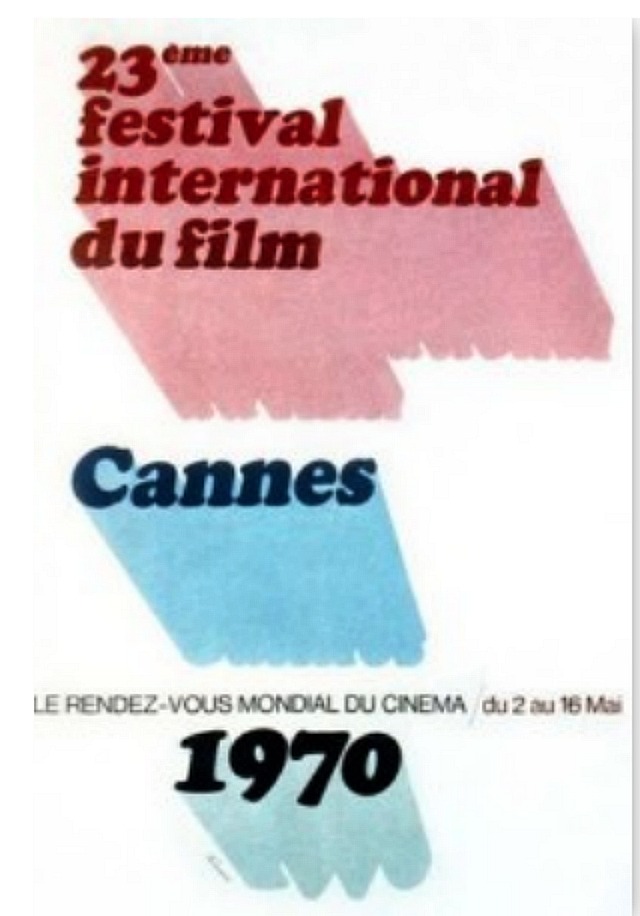Earlier today I asked author, filmmaker and Hollywood Reporter critic Todd McCarthy for a certain Apocalypse Now recollection, which he was a little fuzzy on. Then I asked about his long history with the Cannes Film Festival, and the following d just poured out. Magnificent I-was-there stuff.
“My first Cannes was actually 1970, when I was a student spending the year in Europe. I was a film critic for The Stanford Daily (Roger Corman recently told me that he reviewed films for the Daily when he was enrolled there after WWII, and he thinks his first review was of My Darling Clementine; mine was Belle de Jour). I knew I wouldn’t be able to get credentialed in Cannes from a school paper, so my pal Ralph Gleason at Rolling Stone offered to credential me even though he had no intention of publishing anything about Cannes — he didn’t give a shit about it.

“I saw more than 40 films that year, met everyone (Otto Preminger, Arthur Penn, Joe Dallasandro, Candice Bergen, Helmet Berger, Romy Schneider, Robert Altman, plus a blind date with the then-unknown Margot Kidder). The American 6th Fleet was in the harbor so the back streets were jammed every night with sailors and hookers, and one’s alarm clock was always the U.S. jets on board the aircraft carrier firing up their engines around 6 a.m.
“Then Kent State happened, and Altman, Michael Wadleigh and Stuart Hagman organized for everyone to wear black armbands for a couple of days. It was all an amazing scene — no publicists restricting access, even the biggest names just strolling down the Croisette with no hassles.
“An amazing fact in retrospect is that, in those days, almost no American critics or journalists attended Cannes. Charles Champlin went occasionally, and in the 1970s Vincent Canby showed up two or three times. Richard Corliss and Roger Ebert started sometime in the early-to-mid ’70s.
“But in 1970, the New York Times just sent two Paris stringers, the married couple Richard and Cynthia Grenier, and the only Yank critics who actually crossed the pond to attend were Rex Reed and Kathleen Carroll. I had drinks or lunch with them a few times, and this was when Rex was at his preening peak, one month before the release of Myra Breckenridge. He was pretty hilarious company and Kathleen couldn’t have been nicer.
“But best of all was my evening with William Wyler. He had his last film, the misfired The Liberation of L.B. Jones, about to come out, but was just tooling around Europe with his brother Robert and decided to pop into Cannes for a couple of days.
“Early one evening I wandered through the Carlton Bar to see who was around and saw my buddy Albert Johnson of the San Francisco Film Festival, sitting with a couple of old gents. Albert waved me over and introduced me to the Wyler brothers. I could scarcely believe my great good fortune.
“After a couple of drinks Albert proposed dinner, so 20-year-old moi got to enjoy a four-hour repast with one of classical Hollywood’s greatest directors. (I’d actually already seen nearly all of his films and had written a 20-page paper about him for a film class). Although famously hard of hearing because of his final WWII bombing mission, Wyler was excellent company and amazingly self-deprecating. So that made my year.
“After I graduated I got a regular Cannes gig with Le Film Francais because they finally decided they needed an English-speaker on the staff. That lasted until I joined Variety in 1979, so, to answer your question, yes, I was a Cannes mainstay from the mid-to-late 1970s.
“But then there was a break of a few years because Variety wouldn’t spend the money to send any staffers over to Europe for any festival, only using their international crew (Gene Moskowitz from Paris, Bob Hawkins from Rome, et al.). That finally changed in the mid ’80s and I’ve been going ever since.
“I don’t know if it’s still accessible, but I wrote a multi-part recollection of my 1970 Cannes exploits for Indiewire during my brief tenure there post-Variety/pre-THR. It’s quite detailed, so check it out if you feel like it.
“And, as you know, it was Apocalypse Now that changed everything in terms of American publications feeling that they needed to send journos to Cannes. We were very few and far between up to then, with the English-language press largely consisting of the old-school Brits like Alexander Walker, Peter Noble, Derek Malcolm and the Sight + Sound posse.”
Here’s a version of the same tale that The Hollywood Reporter posted in 2013.
The 1970 Palme d’Or went to Robert Altman‘s MASH. The festival opened with Les Choses de la vie, directed by Claude Sautet and closed with Le Bal du Comte d’Orgel, directed by Marc Allégret.
